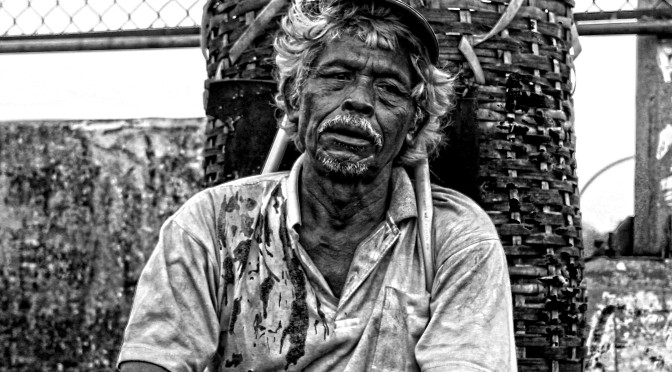Sixty women leaders from 18 nations gathered in Amsterdam in June to celebrate the gifting, service and leadership of women in the Church across the globe. They mourned the injustices women suffer and called on Christians to take steps to honour women’s leadership in family, church and community.
In the first few days of June 2019, I was privileged to be among a group of Christian women leaders from all across the world met together in Amsterdam over three days to develop a ground breaking document known as The Call which addresses the injustices faced by women across the globe, and calls on Christian organisations everywhere to address the issues raised. Hosted by the World Evangelical Alliance and the Lausanne Movement, this empowering forum, known as Rise in Strength, was in many ways made even more salient by the posture of humility exhibited by the delegates as each celebrated the callings and skillsets of the others without the posturing and jostling for position which is often found in meetings where groups of leaders come together. Together those women
The Call is an incitement to the Church to embrace the purposes of the God who created mankind as equals, male and female, in His image. History will show that those three days were ones in which the Church took a giant leap forward in the battle against misogyny and gender bias as it operates across the spectrum of churches and denominations.
As The Call is sent far and wide to denominations, networks, churches, theological colleges, charity organizations, blogs, vlogs and any other interested parties across the world, there is an expectation that it will increase the clarity through which the Church may view issues faced by women and girls in the world and in the Church. Such clarity, supported as it is by scripture and by the clear anointing of Holy Spirit on the lives of women leaders and scholars, will result in an increase of willingness for Church organizations and individuals to look again at matters concerning the other half of the Imago Dei.
Here is the complete transcript of the document developed by the women at Rise in Strength. Please feel free to use it for your own context, and send it far and wide so that others may have the opportunity to take part in The Call to the Church for restoration of women to their rightful place among God’s people.
PLEASE SPREAD FAR AND WIDE
THE CALL TO ALL CHRISTIANS
We, sixty international women leaders[1], met at the Rise in Strength consultation in Amsterdam, June 2019, to celebrate the contribution of Christian women to the work of God in the world.
We gathered from diverse backgrounds, recognising the changing context in which we find ourselves.
We were united in our conviction that gender inequality continues to be a barrier that diminishes the effective witness of the Church to the transforming power of the Gospel.
We affirm that Jesus came that we may all have life and have it in all its fullness[2]. This Gospel transforms lives; the Bible affirms that Jesus called, accepted, healed and restored women. We commit to sharing and demonstrating this Good News; women and men[3] continue to be compelled by God’s grace and the empowerment of the Holy Spirit[4].
We affirm the theological approach of the Lausanne Movement’s Cape Town Commitment as a foundation for our Call to all Christians: “That all of us, men and women, married and single are responsible to employ God’s gifts for the benefit of others as stewards of God’s grace and for the praise and glory of Christ. [We] are also responsible to enable all God’s people to exercise all the gifts that God has given for all the areas of service to which God calls the Church.” [5]
We are compelled, building on this Biblical foundation, to broaden our awareness, increase our attentiveness, and commit to specific actions to restore God’s intention for all people.
AWARENESS
We recognise that our communities and leadership structures have not always been encouraging, freeing or even safe for women and girls, who are each valued and loved by God.
We acknowledge that the pathways for women to serve as leaders in the global Church are limited, and this has prevented many from contributing to the Church in this way.
We acknowledge that the Church has deeply hurt many women and girls, and not heard or acknowledged their pain.
We acknowledge that violence, in all its forms, towards women is perpetrated not only outside the Church, but also inside.
ATTENTIVENESS
We recognize that the global Church has too often ignored the voices of women in its communities.
We commit to being attentive to these voices, including experiences, perspectives, joys and suffering.
We commit to being attentive to women and girls among the most vulnerable populations and regions of the world, especially those living in extreme poverty, or with disability, those endangered by human trafficking, persecuted for their faith, denied education and legal rights – and so at greatest risk of gender-based violence and discrimination.
We commit to discerning the spiritual gifts of all women and girls, so as to draw upon resources God has given for the full health and strength of the whole Church, wherever it manifests across every sector of our society.
ACTION
We must all act to:
Engage in a positive dialogue, mourning and repenting of mistakes and the pain we have caused, and seeking reconciliation; believing this is a first step to making our communities more empowered in Christ and safer places for women, girls, men and boys.
Celebrate the strength, courage, gifts and work of women in churches around the globe.
Work in unity to address the issues which concern us regarding the most vulnerable populations, especially those in extreme poverty and facing persecution for their faith.
Consecrate our gifts and opportunities to further strengthen, grow and mature our local churches and the global Church, in imitation of Christ’s example of Servant leadership.
Commit to collaboration between women and men.[6]
Equip women and girls to take up leadership positions in the Church and wider society, including training and development, making the most of innovative resources .
We call on men and women of the global Church to act so that women, men, girls and boys can all embrace their spiritual giftings to strengthen the work of the Church, and Her witness to the glory of God.
[1] 64 women from 18 nations participated in the consultation
[2] (John 10.10b)
[3] (Gen 1.26-8, 2.23)
[4] (Acts 1.8)
[5] https://www.lausanne.org/content/ctc/ctcommitment#capetown, p.6
[6] Eph 5.21, John 17.21-3












 What is your community like?
What is your community like?